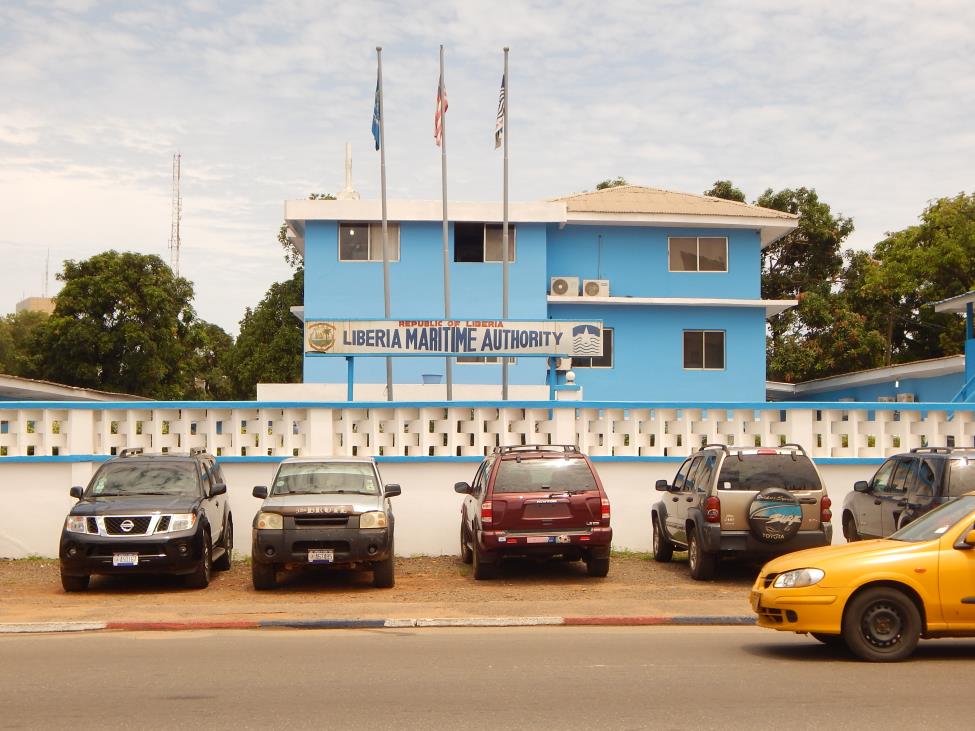MONROVIA, Montserrado – Since President Ellen Johnson Sirleaf issued Executive Order Number 84, granting oversight and fiscal authority of the Bureau of National Fisheries to the Liberia Maritime Authority, stakeholders in the sector have been reacting strongly.
The action, which has been heavily criticized by the Environmental Justice Foundation and questioned by the European Union, also reduced the Inshore Exclusion Zone established by a 2010 fisheries regulation and reserved for artisanal fishermen from six to three nautical miles.
“This is to ensure that industrial and semi-industrial fishing can restart again, and become viable,†the executive order states.
The order took effect upon issuance. It also provides that fishing vessels below 500 gross tons shall be exempted from all APM Terminals and other port handling charges.
It says cumulative stock of fishery resources to be harvested shall not exceed 100,000 metric tons per year.
The Bureau of National Fisheries, now under the supervision of the Liberia Maritime Authority, will issue and publish revised guidelines and fiscal regime for obtaining fishery license under the executive order.
The new regulation will allow industrial vessels, including trawlers, to fish much closer to the shore along with skilled fishers.
The Environmental Justice Foundation has issued a warning to the Liberian Government that it risks undermining the country’s food security if it continues with its plan to allow industrial vessels greater access to fish in its coastal waters.
The organization says reducing the exclusion zone would see an almost inevitable rise of competition from foreign industrial vessels fishing in coastal waters and could put the livelihood of the 33,000 people who rely on this industry at risk.
“Moreover, as most foreign catch is exported overseas, the expected reduction in levels of fish being supplied to Liberia would threaten the food security of hundreds of thousands of citizens,†the statement read.
According to EJF, the Community Management Association from Robertsport, which represents artisanal fisherman in the region, said they are extremely disappointed by the government’s decision to reduce the exclusion zone.
According to them, since its introduction in 2010, the six-nautical-miles zone has hugely increased fishers’ fish catch and improved their incomes.
They fear that by reducing the exclusion zone, industrial trawlers will re-enter their territories and steal the fish they rely on to feed their families.
They say local fishing communities are now mobilizing to urge the government to reverse its decision, which they believe will put local fishermen, their families, and the entire country’s food security at risk if implemented.
EJF Executive Director Steve Trent said by removing the six-nautical-mile limit, the government is favoring short-term economic interests over the needs of its people.
“The limit underpins the sustainability of the fisheries that provide vital food, livelihoods, and incomes for hundreds of thousands of Liberians. Removing it threatens the very survival of these fisheries, and the well-being of all those who depend on them,†Trent said.
The foundation added that Liberia’s coastal waters are also a vital spawning and breeding ground for many species of fish.  Allowing trawlers so close to the coast would endanger the region’s fragile marine ecosystems, further compromising the long-term sustainability of fish stocks in Liberian waters.
It is meanwhile urging the Government of Liberia to reconsider the proposal to halve its exclusion zone and to safeguard this vital tool for current and future generations of coastal communities.
The EJF disclosed that prior to the introduction of the 2010 fisheries regulation, foreign vessels could fish up to three nautical miles off the Liberian coastline during the 1990s and early 2000s, acts that often raked the seabed and destroyed local ecosystems in the search for high-value commercial species close to the shore.
It said the situation often caused major conflict between foreign trawlers and the country’s artisanal fishing fleet.
Since 2010, when the exclusion zone was introduced, artisanal fishers in Liberia have reported improved catch, increased incomes, a decrease in conflict with industrial trawlers, a reduction of the loss of equipment and an increase in safety at sea.
EU Ambassador to Liberia Tiina Intelmann, in a communication to President Sirleaf on May 18, expressed surprise over the issuance of the executive order without a consultation to the EU Delegation to Liberia, as agreed by both parties in the EU-Liberia Sustainable Fisheries Partnership Agreement, signed in December 2015.
Intelmann said under the agreement, both Liberia and the European Union aimed to promote responsible fishing in the Liberian fishing zone.
She said the agreement has introduced great improvements in the sector governance, especially regarding the licensing of foreign vessels, and has been generating significant revenue for the government.
“The European Union was surprised to learn about this executive order from the press as the SFPA agreement clearly states that ‘Art 3.5 – The Parties shall cooperate with a view to implementing a sectoral fisheries policy adopted by the Government of Liberia and to that end shall initiate a policy dialogue on the necessary reforms,’†she wrote.
“’They shall consult with a view to potentially adopting measures in this area’ and ‘Art 3.8 – The Parties shall consult one another prior to adopting any decision that may affect the activities of Union vessels under this Agreement.’”
The ambassador expressed that the European Union has serious concerns about the implications of the order.
“Based on experience in other countries and beyond we have reason to believe that some of the measures introduced under Section 2 of the [executive order] will not lead to sustainable investments, but rather to the accelerated depletion of current fish stocks, resulting in reduced economic opportunities in the sector and increased food insecurity,†she disclosed.
With regard to the transfer of the interim overall responsibility for the Bureau of National Fisheries from the Ministry of Agriculture to the Liberia Maritime Authority, the Ambassador said, the EU would have rather welcomed a swift approval of the draft Fisheries Act by the Legislature.
She said since 2015, the European Union has been cooperating with Liberia in the fight against Illegal, unreported, and unregulated fishing.
According to her, one of the problems identified during a dialogue was the fact that Liberia’s internationally operating fishing vessels and reefers are not controlled by the competent authority for fisheries.
At the same time, the European Union’s directorate-general for maritime affairs and fisheries, Karmenu Vella, has issued a warning for Liberia to put proper control mechanism over its fleet, or it would be identified as a non-cooperating country under the EU’s regulation to fight and deter illegal, unreported and unregulated fishing.
According to the statement, the country has the second biggest shipping registry in the world with over 100 fishing transport vessels registered under this flag. However, Liberian authorities do not have the information or means to control this fleet.
The statement said the lack of control has been confirmed by the listing of a Liberian vessel on the international “black list” last October.
“Liberia has taken reform measures including the revision of its fisheries laws, but no tangible progress has followed,†it says.
“The Commission hopes that the pre-identification will raise political awareness and encourage the country to implement the necessary reforms in fisheries governance.â€
When contacted, Presidential Press Secretary Jerolinmek Piah refused to speak on the issue. He referred The Bush Chicken to the Liberia Maritime Authority.
Mulbah Yorgbor Jr., the director of corporate communications and stakeholders engagement at the Liberia Maritime Authority, also feared that commenting on the issuance of the executive order and the comments from EJF and EU were beyond his jurisdiction.

Mulbah K. Yorgbor Jr., Director for Corporate Communications and Stakeholders Engagement at Liberia Maritime Authority; Photo: Gbatemah Senah
However, Yorgbor said the decision in the executive order would institute several benefits in the sector, contrary to how it is being viewed by critics.
He said for the past seven years since the six-nautical-miles exclusion zone was introduced, industrial fishing activities in the country has dramatically reduced, although there was no moratorium currently on fishing activities.
Yorgbor said companies who previously had a license issued had left the area because their investment was no longer attractive.
“Since that time, we only have two licenses that have been issued for fisheries activities,†he said, although he added that those two licenses were for tuna fishing, which is carried out beyond the six nautical miles IEZ.
He said over the last seven years, the country generated only US$3.5 million per year in licensing fees, while also importing 50,000 tons of fish a year. By comparison, the amount of fish caught by artisanal fishermen on an annual basis is 3,000 tons.
As such, he said the country heavily depends on importation, which according to him affects the country’s balance of payment.
He said if the sector is revitalized, the dependency on foreign imports would reduce, with a domestic production capacity to serve the market needs.
Unlike what is being perceived, he said foreign fleets under the new regulation would land with the catch on Liberian soil.
“The regulations and guidelines which the executive order has mandated maritime to promulgate before any license is issued would ensure that landing sites are identified that when you catch a fish, you have to come on Liberian shore and your catch is declared; then the one for the Liberian market is supplied to the market; and those of high value we can’t pay for based on our economic standing will be exported,†he said.
“There will be regulatory measures put into place to ensure that every catch is landed here.â€
Yorgbor did not state whether there would be anything to stop foreign fishing vessels from exporting their catch after landing. This is a concern, because the fleets may prefer to export their catches for higher revenues, leading to the exportation of most of the fish from the country, with Liberians still having to rely on lower quality imported fish for local consumption.
“The enforcement regime will ensure that the supply side of the equation is consistent to meet market demands,†he said, in response to the issue.
Commenting on compliance, Yorgbor said interagency collaboration between the Liberia Maritime Authority and the Ministries of National Defence and Lands Mines and Energy and the Environmental Protection Agency would always work to ensure that the sector is properly guided.
He expressed faith in the EPA’s ability to “ensure that environmentally friendly fishing practices are carried out in a sustainable manner,†adding that the agency had cooperated in the past with the Liberia Maritime Authority and their participation was “remarkable.â€
In line with the executive order, he said fishing would be done in a sustainable manner, and not exceeding 100,000 metric tons a year. This he noted would allow for replenishment of marine species.
He said because fishing relies primarily on the kind of gears being used, the new fishery regulation would take into considerations all sensitive issues, including artisanal fishermen protection and gears. He said the regulation would state what kind of nets to be used, when to fish and kinds of species to catch, among others.
Though the exclusion zone would be reduced to three nautical miles, he said the regulation would also determine where industrial and semi-industrial would operate in a particular zone to allow artisanal fishermen special credence.
“It’s a three-nautical-mile radius, right? But we can determine where these people can go and when †he said.
However, Yorgbor said opening the sector would reduce the threat because license holders for fishing would now serve as police for non-license holders intruding in the sector.
“Those are our plans; we don’t plan on opening this sector up and leave it to be unregulated for people to do whatever they want to do.â€
He described Illegal unregulated unreported fishing as a pressing threat that cannot be avoided whether the sector is opened or kept closed. “That is another layer of policing that would be created as a result of the competition in the sector,†he added.
He refused to attach a specific value to the economic benefits the new decision would direct to the country’s economy. However, he said revenues would far exceed the current US$3.5 million.
According to Bureau of National Fisheries, there are approximately 3,300 canoes and more than 11,000 fishers operating from 114 fish landing sites along Liberia’s 579 km coastline.
The UN Food and Agriculture Organization also reveals that 65 percent of Liberia’s animal protein comes from the fishing sector and some 80 percent of the population depend on cheap fish for their main source of protein intake, according to the World Food Programme.
Moreover, 31.9 percent of Liberia’s population according to the Global Hunger Index is classified as undernourished, while 16 percent of families are classed as food insecure by the World Food Programme, making the need for fish protein even more important.
EJF says other neighboring countries that have undertaken similar measures to allow industrial vessels to fish close to the shore have experienced significant damage to their fragile marine ecosystems, and to an increase in overfishing and illegal fishing, thus jeopardizing the livelihoods, incomes and food supply of coastal populations.
It also indicated that foreign fleets that most commonly operate these industrial trawlers are not interested in the sustainability of the fish stocks but in short-term profitability.
These fleets are well-known for their illegal activities and for exporting their catch to international markets, mainly in southeast Asia, robbing local populations of an invaluable source of protein and putting their food security at risk.
Yorgbor counters that results can depend on regulation and enforcement.
“If you set up these regulations, you roll them out and there are actually [fines]; and you have the political will to enforce the regulations, I’m sure you will go far,†he said.
He assured that no office holder at the NBF job would be affected as a result of the ongoing transition. He said the entire staff structure will be moved to the maritime authority.
According to him, because artisanal fishermen would be exposed to more potential risks because of the increase in fleet, under the new regulation, the government would provide training and safety gears for them.
He said the regulation will also consider paying corporate social benefits to fishing communities.
“Those who are affected directly by the fishing activities will have to benefit from revenues generated from the sector.â€
Featured photo by Gbatemah Senah




